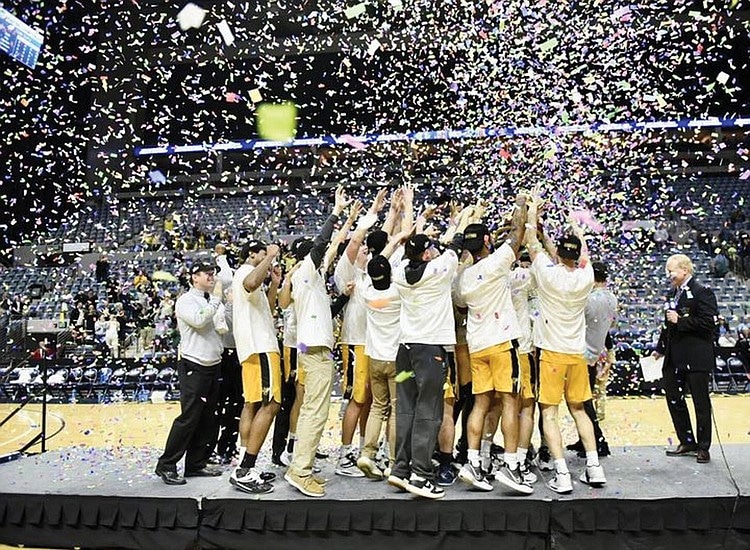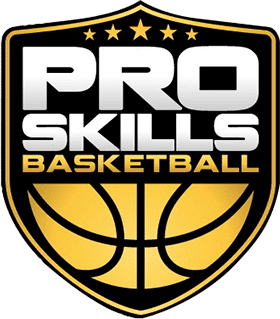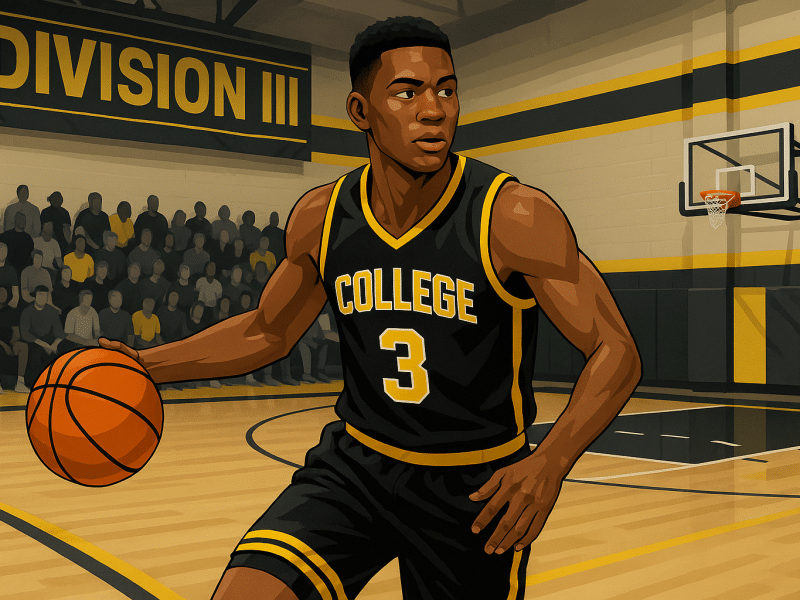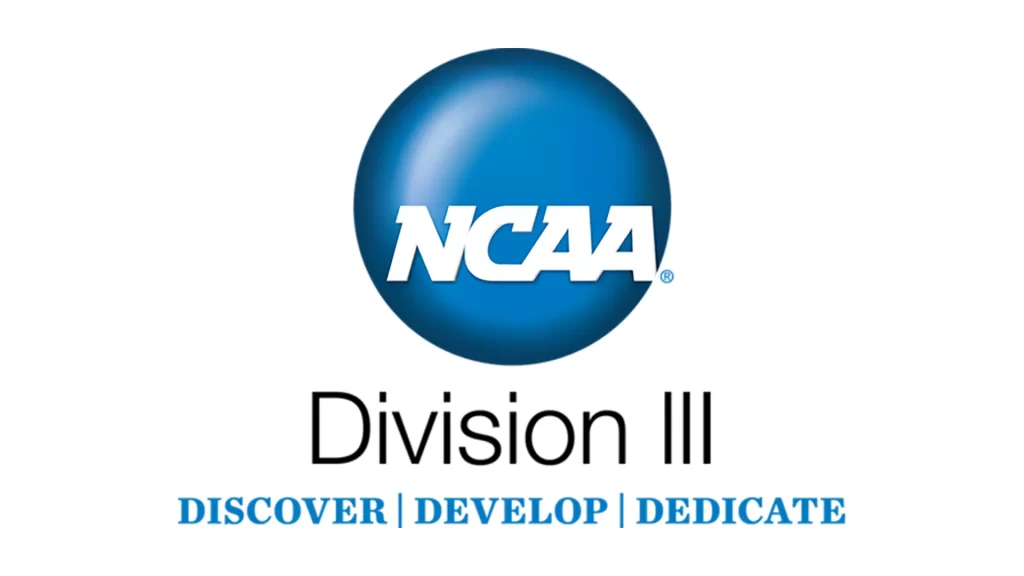Why High School Players Should Seriously Consider Division 3 Basketball
When I was growing up, like many young hoopers, I dreamed of playing Division 1 basketball and making it to the NBA. I ended up achieving the first part — playing Division 1 and later professionally overseas. But during my entire basketball journey, I barely knew anything about Division 3 basketball.
Sure, I had heard about a few guys — like Ben Wallace and Terry Porter — who played small-college ball and still made it to the league. But D3? It wasn’t on my radar.
That changed when my brother was hired as the head coach at Swarthmore College. I started paying attention, and after watching my first Division 3 basketball game in person, I realized just how much I had underestimated this level of college hoops. Here’s what I’ve learned and what every high school basketball player — and parent — should know about NCAA Division 3 basketball.
What Is Division 3 Basketball?
NCAA Division III is the largest division in college athletics with over 400 schools, but it’s also the most misunderstood. These programs don’t offer athletic scholarships, and they don’t get TV deals or massive fanbases like Power 5 D1 schools. But that doesn’t mean the competition isn’t real.
D3 Basketball Players Work Just as Hard
I’ve been to Swarthmore practices, and let me tell you — there’s no drop-off in intensity compared to D1 or D2. The focus, discipline, and accountability demanded by D3 coaches is exactly what you’d expect at any high-level program.
Just ask Bill Nelson, who spent nearly 30 years at Johns Hopkins and won close to 600 games. Or Glenn Robinson at Franklin & Marshall, who became the all-time winningest coach in Division III history.
These aren’t casual pickup runs — this is real basketball. The players go hard. The coaches push. The games matter. If you’re serious about getting better, Division 3 can absolutely develop you as a player and person.

📸 Pictured: Randolph-Macon wins the 2022 D3 National Championship with PSB alum Will Coble on the roster.
Yes, Division 3 Coaches Recruit — Hard
One of the biggest myths we hear from players is:
“If I don’t get recruited by D1 schools, I’ll just go play D3.”
Not so fast.
Just like in D1 or D2, if a D3 coach believes you can help their program win, they’ll pursue you. That means phone calls, recruiting questionnaires, in-person evaluations, and even home visits.
You don’t just fall into a roster spot at a great D3 program. You have to earn it — and that starts with standing out.
With only a few thousand college basketball roster spots available across all levels, you must bring value to a team and be actively involved in the recruiting process.
Division 3 Basketball Scholarships: What You Need to Know
Here’s the deal:
🟥 There are no athletic scholarships in Division 3.
But that doesn’t mean you’ll pay full tuition. Many D3 schools are among the best academically in the nation and offer significant merit aid, need-based financial aid, and academic scholarships that can make attending more affordable than many D1 or D2 schools.
A lot of families are surprised to find that total out-of-pocket costs at a D3 school can be lower than at a school with an athletic scholarship. So don’t count it out — do the math, apply for aid, and weigh your options.
The Culture of Division 3 Basketball
D3 basketball is special. Why?
Because it’s basketball in its purest form.
Players at this level aren’t chasing NIL deals or SportsCenter highlights. They aren’t angling for a quick exit to the NBA. They’re not promised gear drops or private charter flights. They play for the love of the game.
Here’s what University of Wisconsin-Stevens Point coach Bob Semling had to say:
“Basketball is so pure at this level. Guys are holding down summer jobs, and they are great students. There are no egos. These kids just play for the love of the game.”
This is a tight-knit community — players form deep bonds, stay connected for life, and often become leaders in business, coaching, and more after graduation.
Can You Still Go Pro from Division 3?
Yes, it’s possible — and it’s happened more often than you think.
-
Duncan Robinson (Williams College → Michigan → Miami Heat)
-
Andy Panko (Lebanon Valley College → 16-year pro career in Europe, ACB MVP in Spain)
-
Jeff Gibbs (Otterbein University → long career in Japan and Germany)
Will D3 hurt your NBA odds? Realistically, yes — but only slightly. The odds of making the NBA from any level are tiny. But if you’re good enough, scouts will find you.
More importantly, Division 3 can open the door to professional opportunities overseas, in coaching, and beyond.
Why D3 Might Be the Best Fit for You
If you value:
✅ Academic excellence
✅ A high level of basketball
✅ A balanced college experience
✅ Playing time and development
✅ Relationships with like-minded teammates
Then Division 3 might be the best-kept secret in college basketball.
Don’t overlook schools just because they’re D3. Do your research. Watch a game. Visit a campus. Talk to the coaches. You might just find the perfect fit.
View this post on Instagram
Conclusion: Don’t Sleep on D3 Basketball
Division 3 basketball isn’t “less than.” It’s different — and in many ways, better for the right type of student-athlete. Don’t let the lack of athletic scholarships or TV exposure fool you.
If you’re a high school player who loves the game, wants to grow, and is willing to work, D3 could be your path. But remember: getting recruited isn’t automatic. You still need to train, improve, and market yourself.
Want help taking that next step?
🎥 Check out our YouTube channel for recruiting tips, skill workouts, and insider advice from former college players and coaches.
Ready to take the next step in your child’s basketball journey?
Pro Skills Basketball offers Club Teams, Camps, Clinics, and Academies in 25+ cities across the U.S.
👉 Find your city and sign up today to join a program focused on real development, experienced coaches, and a culture that puts players first.
📩 Contact us at admin@proskillsbasketball.com
📞 Call us at 866-996-3888



